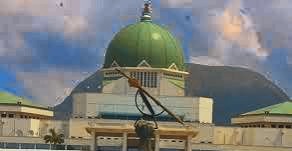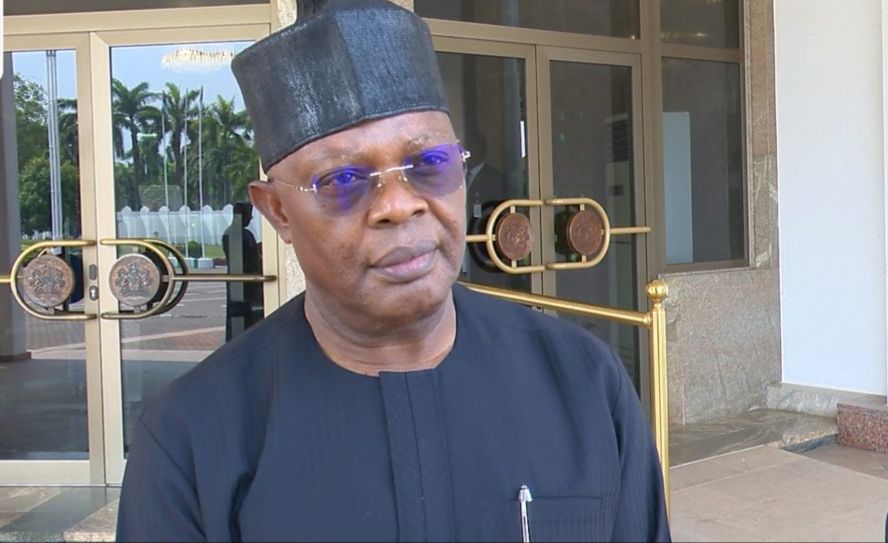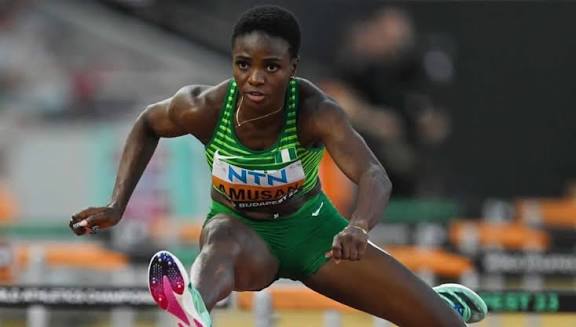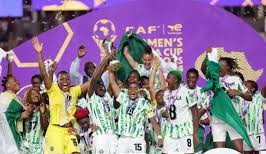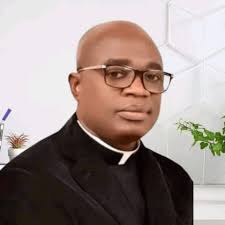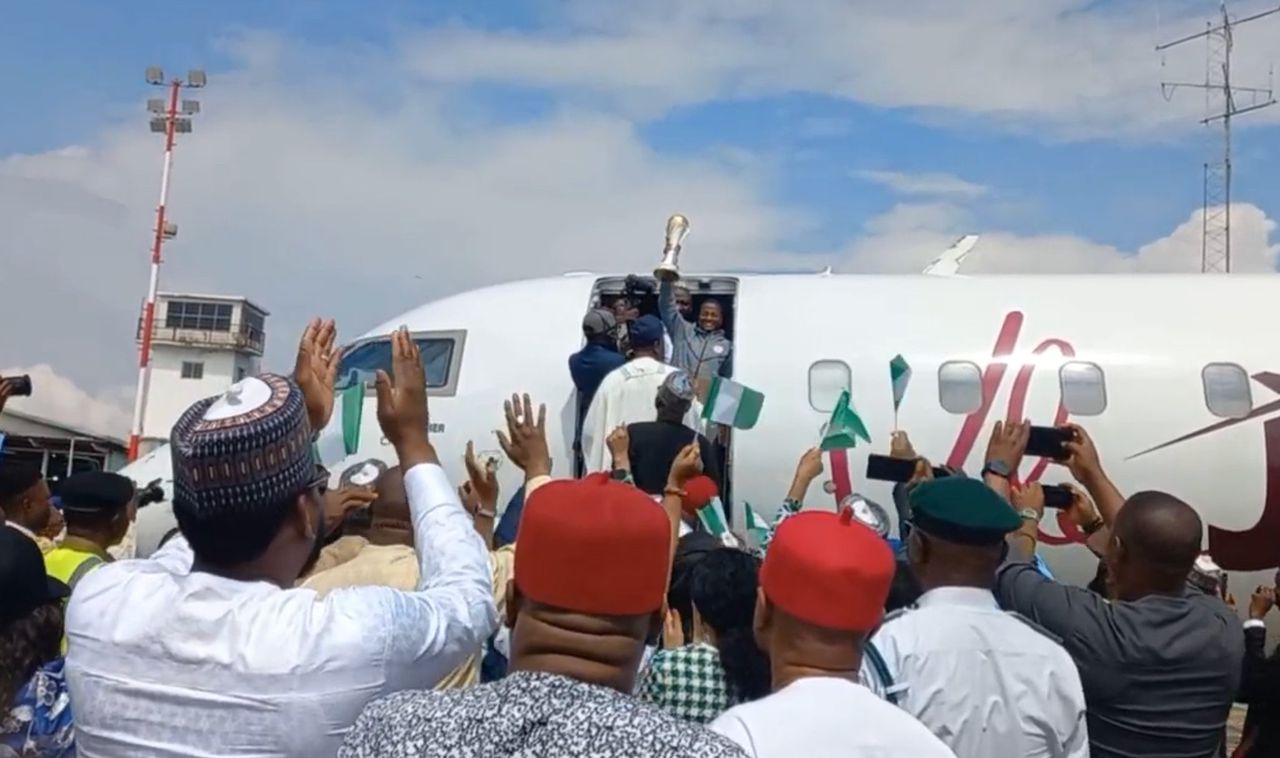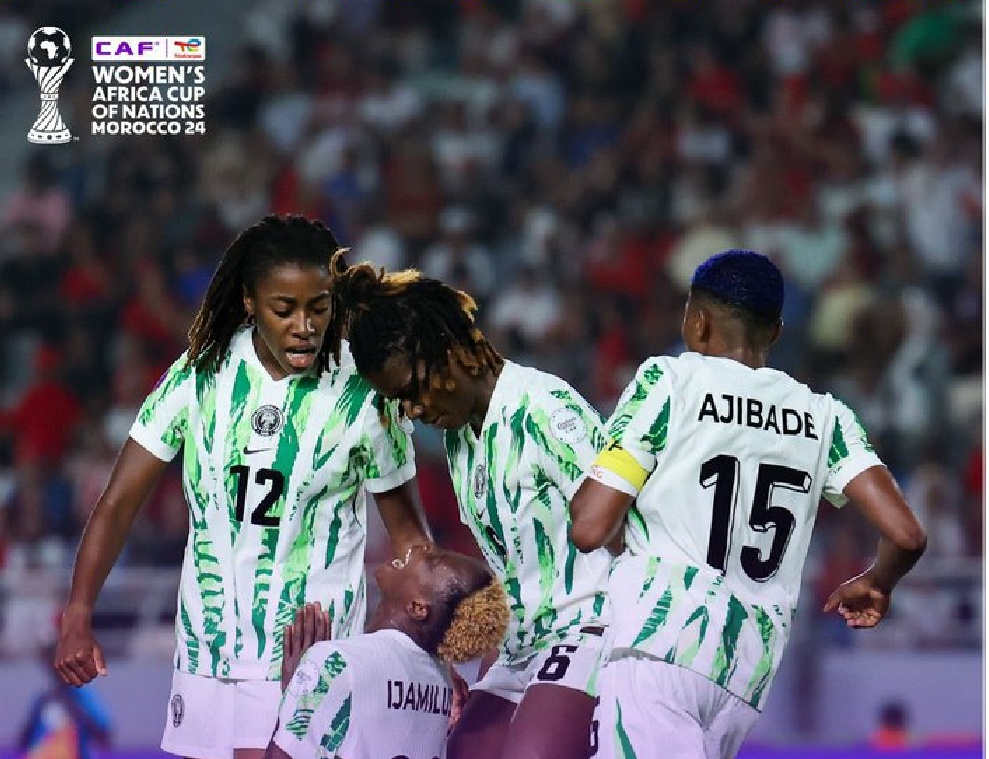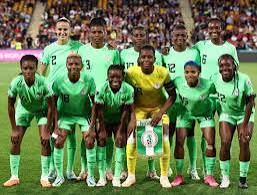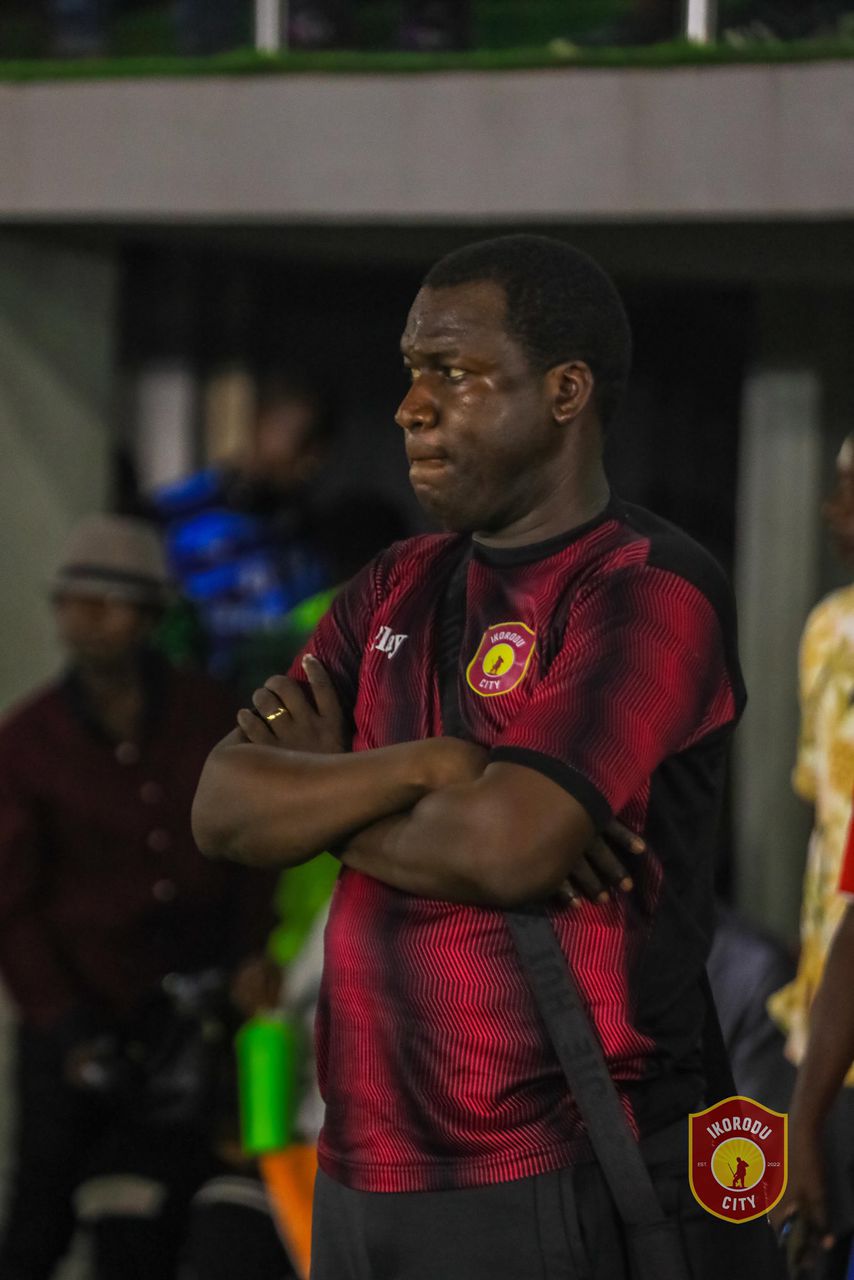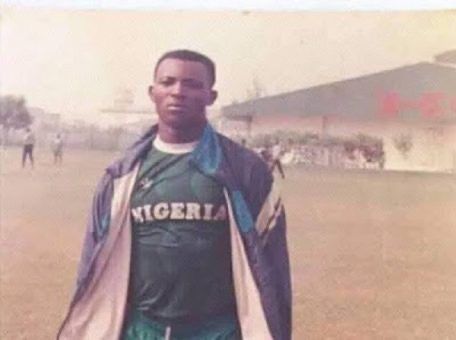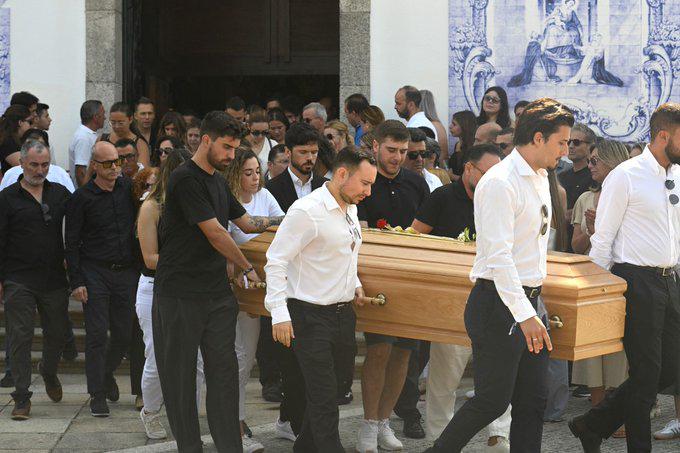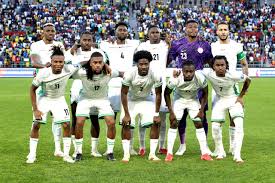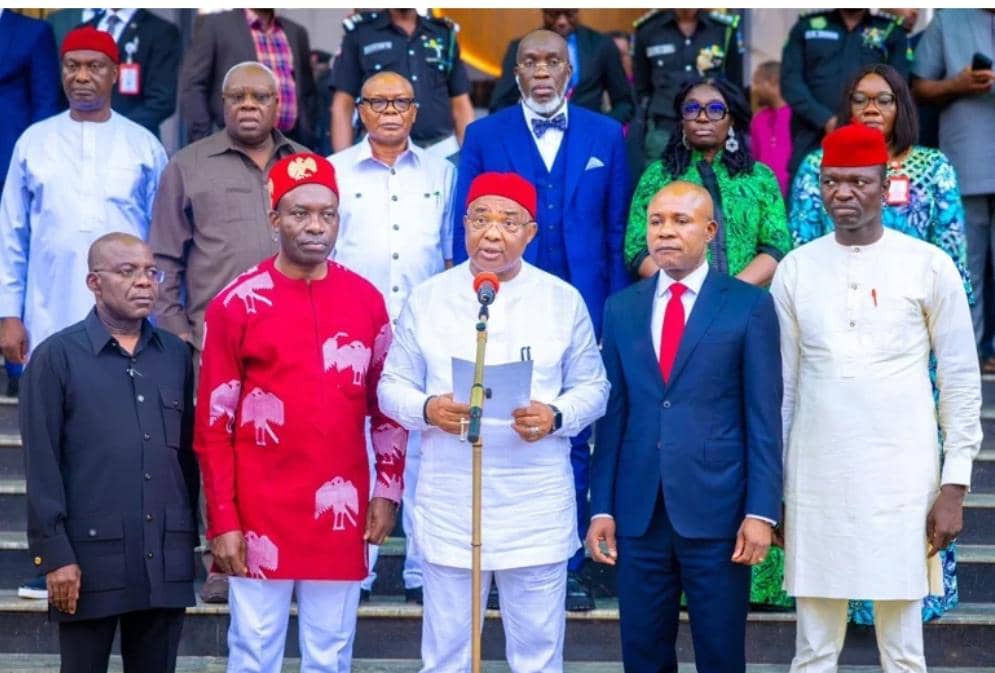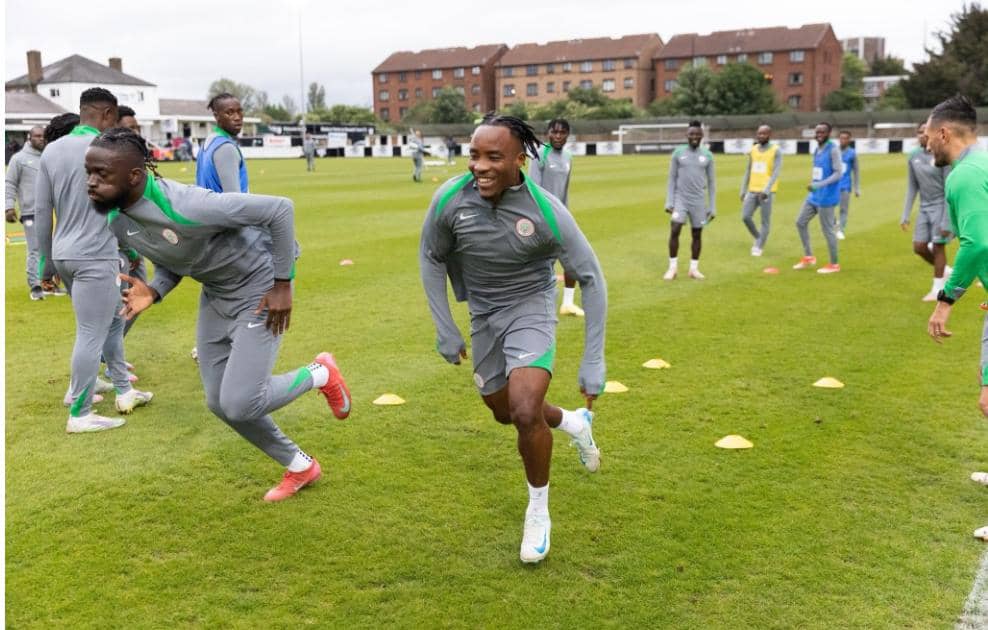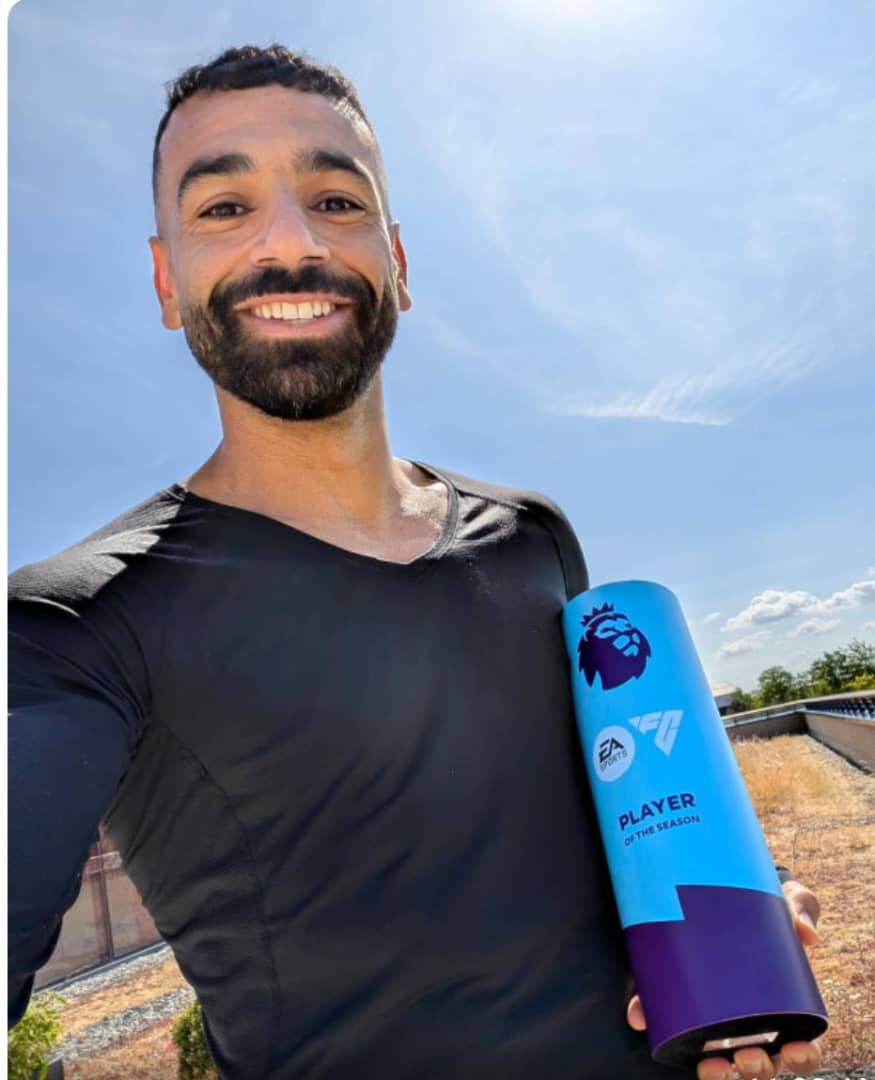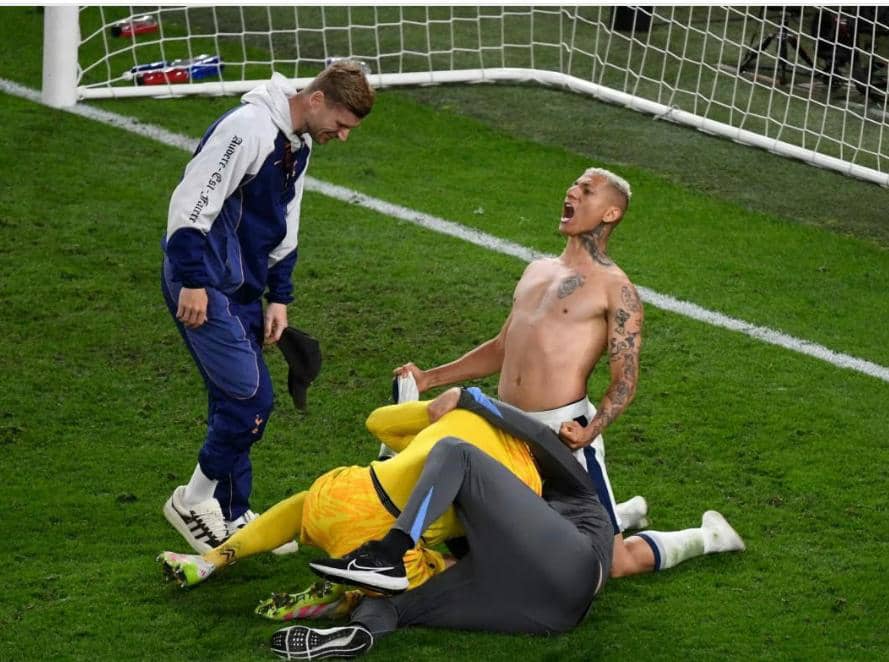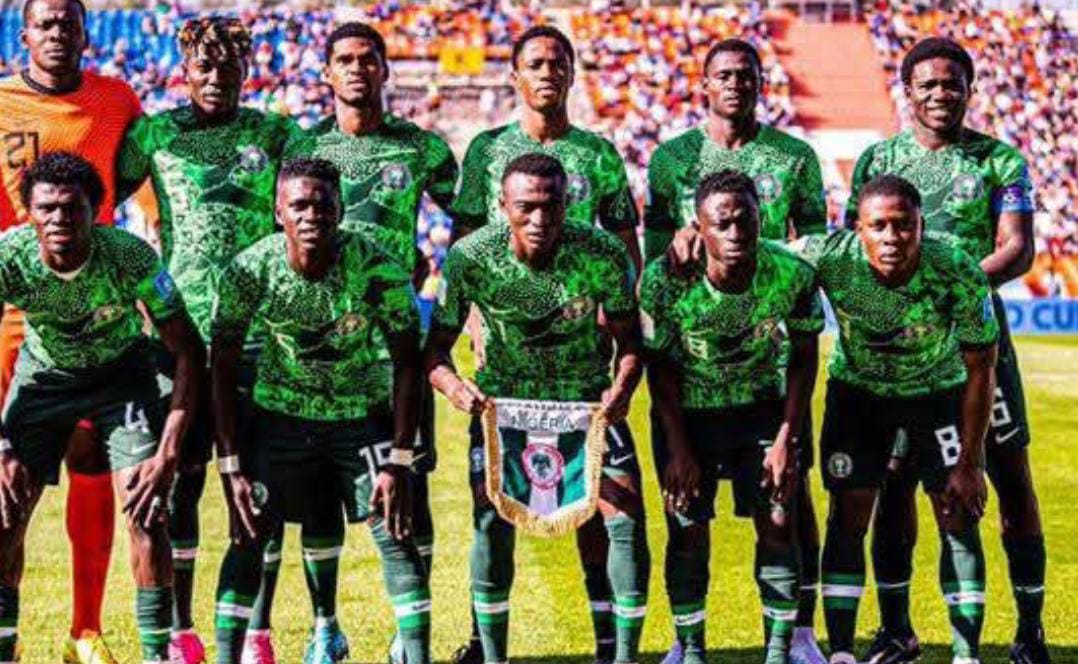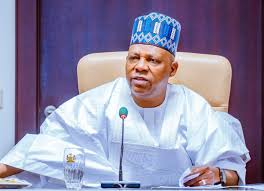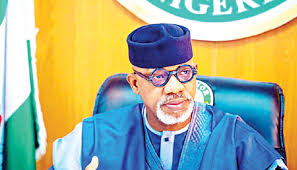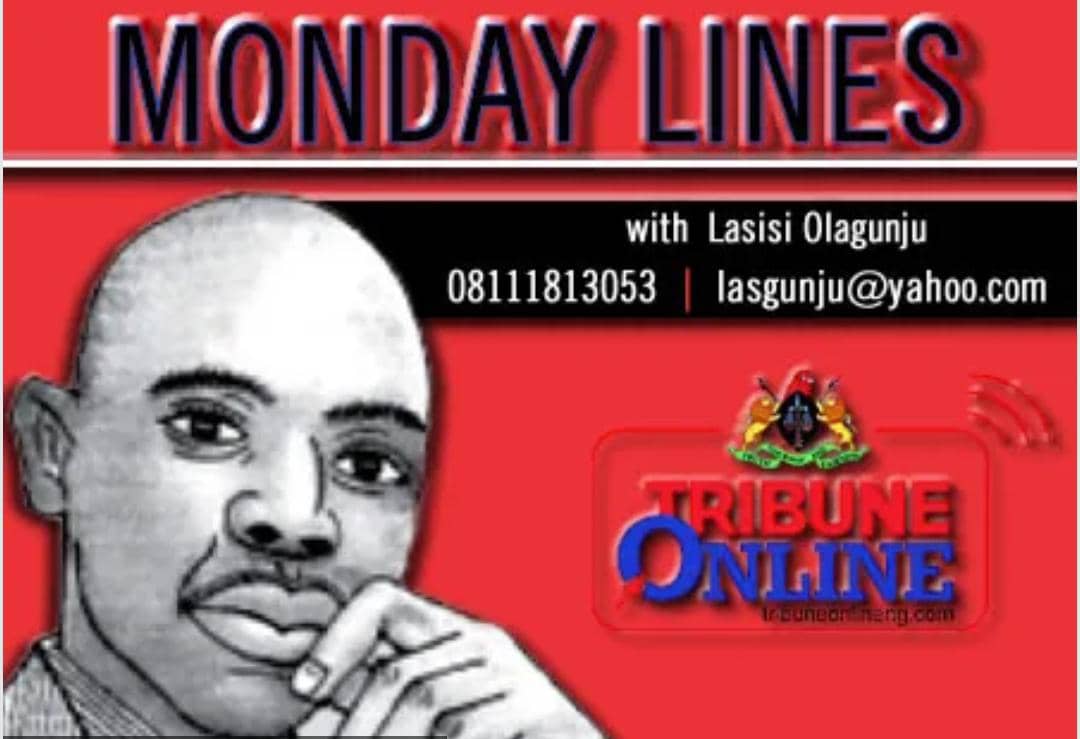
By Lasisi Olagunju
One hundred and seventy-nine Anambra kings gave President Bola Tinubu a chieftaincy title last week. They said the title, ‘Dike si Mba’ means “Warrior from the Diaspora.” That title, plus its translation, get as e be. I heard them and asked questions. If they didn’t translate it, I would be quiet. But they did. Why Diaspora? Why not ‘Dike Mba’ (People’s Warrior) like Ojukwu’s ‘Ike Mba’ which means ‘Power of the People’? Why negativise Tinubu’s with ‘si’? Àtòhúnrìnwá! You can honour the president with chieftaincy titles without calling him an outsider. ‘Dike si Mba’ sounds like ‘Foreign Fighter’ or ‘Shadow Warrior’ or ‘Conqueror from Outside’ or even an invader.
Diaspora?
No. The whole of Nigeria is the president’s constituency.
Warrior? Yes. That is what Tinubu is.
Foreigner? No. The president owns Nigeria.
Shadowy? No. He is bold and intrepid.
Invader? No. A president cannot invade his own country.
The installation circus was fascinating. It was pleasant to watch.
The president got beautiful beads for his neck; he also had a temptation red cap for his fortunate head. For the neck beads, the ‘kingmaker’ counted one, two, three in Igbo before dropping the string.
But why counting three? American anthropologist, Daniel Brinton, in 1894 linked that number to what he called an invocation of “the Past, the Present and the Future.”
For the president’s red cap, the counting went beyond three; it reached seven. Again, Brinton says ‘seven’ represents completeness and perfection.
To get that perfect state, add the four cardinal directions of East, West, North and South to the three conceptions of vertical space: Above, Below and Here.
A warrior’s conquest is total and complete and perfect when it fuses the cardinal points to the vertical space. With that title, Tinubu will soon have it complete and perfect.
Until now, I had thought Ibadan people were the only ones who use hospitality to rattle their guests.
A musician went to Ibadan some 50 years ago and almost got stuck there because of Oluyole’s goody-goody. Ibadan dùn.
The musician was the legendary Yusuf Olatunji, foremost Yoruba sakara musician of the 1960s, 1970s. He died on 15 December, 1978. His record, volume 33, is a vinyl of appreciation for the uncommon hospitality he got from the city of generous warriors.
Yusuf sings that he went to Ibadan and met someone “who fetes his guests so much that they get scared (A s’eni l’álejò k’érù ó ba ni).”
The singer is not done with his thanks.
He draws a parallel: “Some people give you chickens to rear and they regularly count the number of eggs they lay. But son of Olagunju gave out horses complete with saddles. He entertained me so well that I couldn’t tell my wife anything when I got home… He blessed me with a babe (Ó fi baby kan ké mi/ enu ò gbà’ròyìn).”
It was with a great reluctance that he eventually went back home after his musical show. The man got home and waxed volume 33, promising to go back there: “People going to Ibadan should help me greet son of Lawani.
They should tell him that I am coming back to Oluyole.”
The president went to Katsina two weeks ago – the week before Anambra. He came back to Abuja without his trademark cap. For much of last week, on the president’s head was a new headdress.
It was Arewa all the way. He is probably the only one who could tell what ‘fura’ or ‘nono’ or ‘wake ntura’ he was fed with in Katsina. He had a nice time, it was obvious. Not even the glass-shattering impunity of some rude palace guards could unnerve him.
He was loved. But he may soon find out that leaf turns to soap only at one’s home. Out there, the saying is that even if a log stays ages in the water, it never becomes a crocodile.
Famous Hausa musician, Dauda Kahutu Rarara, thrilled a clapping Tinubu with his latest song, ‘Omo Ologo’ (Child of Glory). “Bola Asiwaju/Omo Ologo.” Rarara sang in passable Yoruba. The president brightened up; he smiled, laughed and clapped. I watched that Rarara scene and remembered another line in Yusuf Olatunji’s song:
“If a man is wealthy and he uses his wealth to bless his relations, friends and the elderly; he will be celebrated till the evening of his life.”
May God give us plenty of Omo Ológo (children of glory); the ones that will win at home and abroad and bring home uncommon slaves, crowns and coral beads.
Last week, the president moved from the North to the East, the land of the rising sun.
In Anambra, Tinubu’s cap turned red with a conqueror’s feather as the icing on his cake. He got a war title.
“This is a title from all the royal fathers in the 179 communities of Anambra State. The title is called ‘Dike si mba’, meaning ‘Warrior from the Diaspora’, and it is in recognition of your good works across the country,” Igwe Chidubem Iweka, chairman of the Anambra State Traditional Rulers Council, told Tinubu as the installation drama reached the climax.
The Igwes said the president is a warrior from the diaspora. What informed that choice of title? ‘Diaspora’ is an ancient word that suggests externality. “It is an outer-national term”, that is what Paul Gilroy of the University of London says it is. In cues and clues, diaspora hints at being here without being ours. It connotes simultaneous acceptance and rejection. But what do I know and what does it take to become a chief in an alien land? If you learn how to wash your hands properly, you will have caps and feathers competing for your head. A million of such titles eye the president’s ever willing head. I am learning fast.
The Anambra rulers did it even better than those whose fathers installed chiefs a million years ago.
The title is in recognition of the president’s “good works across the country.” It turned out that Chinua Achebe is right when he says that “whatever tune you play in the compound of a great man, there is always someone to dance to it.” The title givers had a backup in the Anambra youths who joined them with their own anthem of adulation: “Na our Papa be this o e/ We no get anoda one…” They sang, almost uncontrollably.
They are the new converts to the religion called Bola Tinubu. It is hot in their blood. You remember what literature says about converts and fanaticism? They are a people who won’t be quiet and won’t allow other people to enjoy their quietude.
There is a character in Achebe’s ‘Things Fall Apart’ called Enoch. He is a convert fittingly described by the villagers as “the outsider who wept louder than the bereaved.” Anambra and its philosopher governor played that character last week. And to think that a little over 200 years ago, there was no such things as kings in that corridor where 179 crowned heads crowned the president as their diaspora warrior.
Then came Governor Chukwuma Soludo who completed the rout by collapsing his APGA into Tinubu’s APC. Soludo said his provincial party had a character of grafting alien heads on its trunk at critical moments.
APGA is perennially Achebe’s efulefu “who sold his machete and then wore the sheath to battle.” Last week, it was time for that party’s pepper to prove that neither pounding nor grinding would remove or temper its fire of harlotry. Soludo said APGA, as it did in previous elections, had adopted the incumbent for a second term – even when neither the president nor the law had said it was time to start the 2027 campaigns.
Some people no dey carry last. The Anambra declaration was part of today’s political gold rush and rat race. The sprinters would swear that they jumped the queue because the prophet’s Yoruba rodents are too slow to understand what is going on. Again, Achebe says so in ‘Arrow of God’: “If the rat cannot flee fast enough, let him make way for the tortoise.”
Tinubu is an extremely smart and wise somebody. He has been around long enough to know how to walk this night of Nigeria.
But the feverish scramble to make Tinubu an emperor “is like digging the grave of a hunchback. It will not fit.” I read that wisdom in Elechi Amadi’s ‘The Great Ponds’, page 84. If you tell this to those working hard to sculpt a king out of a democracy, they won’t listen. Achebe was Igbo just like Soludo. Elechi Amadi wasn’t exactly Igbo, he was an Ikwerre man. The old writers wrote wisdom for their time, for our time and for time future. I wish Soludo and his adoptive chanters would read and listen to the prophets and be guided.
If the new Dike demands to be the first king of this democracy, and the converts shout Hallelujah “with automatic alacrity”, how will they get the congregation to back them up with the appropriate chorus? And they need it.
Before Anambra, there was Katsina for Tinubu. And, you know, Sokoto may be proud as the seat of the Caliphate but Katsina is the place where the story started long ago.
Bayajidda I was created somewhere in today’s Katsina State. Bayajidda II lives there. The president may have thought of that. If you are lucky and alert and attentive, your leg will always take you to the road that leads to good fortune.
Like Anambra, the president enjoyed the nights and days he spent with the kingmakers of Nigeria in Katsina. But a billboard of controversy which welcomed him to that state is roiling the state. It stands where it stood in defiance of critical reality.
The message it carries is “Katsina ba korafi (Katsina has no complaint).” No complaint in poverty and bandit-ravaged Katsina? Critics ask that question even as Daily Trust quoted some elders as being angry with the governor for hiding his whitlow fingers from his physician, the president.
The governor disowned the billboard as soon as the president left.
Who then owns it? Son of the soil and Minister of Housing and Urban Development, Ahmed Musa Dangiwa, said he does. Daily Trust quoted him as explaining that the billboard was mounted by his supporters to assure President Tinubu of the party’s support for him in Katsina State. “It is important for the public to understand that the billboard’s message was meant as a symbol of unity and support for the president, not to deny the existence of security or developmental challenges in the state.” Daily Trust said that was what the minister said, panting.
He does try. At least we have a three-word mantra as the takeaway from that presidential visit.
Nigerians are pleased with their leader and his government; there is no complaint.
Something to copy there for the Yoruba when the president comes visiting this week – or the next: Yoruba ba korafi. Yorubaland has no complaint. Our warrior son is the president.


